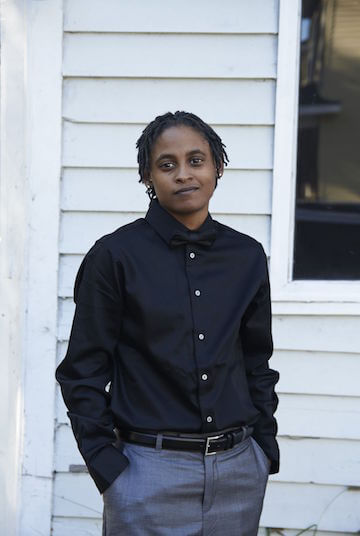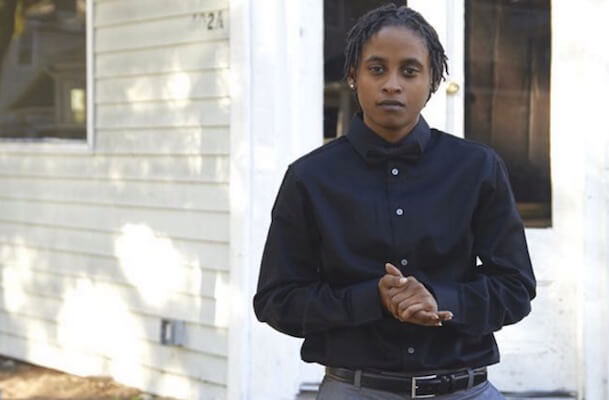In 2000, the US Second Circuit Court of Appeals, which has jurisdiction over the federal trial courts in New York, rejected the argument that sexual orientation discrimination claims could be dealt with as sex discrimination claims under federal law. It was open, however, to the possibility that a gay litigant who had suffered discrimination for failing to conform with the employer’s stereotypical views of appropriate gender behavior could pursue such a claim.
On March 9, Matthew Christiansen, a gay plaintiff, informed the Second Circuit that he will appeal a Manhattan trial court’s dismissal of his federal sexual orientation discrimination claim, joining the trial judge in urging the appeals court to reconsider its 2000 decision.
Since 2000, the law affecting LGBT rights has drastically changed. The Supreme Court has thrown out sodomy laws and recognized same-sex couples’ right to marry, Congress has enacted an LGBT-inclusive hate crimes law and ended the military’s Don’t Ask, Don’t Tell policy. Through all this change, however, the principal federal anti-discrimination law, the Civil Rights Act of 1964, has never been amended to extend explicit protection against discrimination to LGBT people.
Trial judge reluctantly finds Title VII currently offers no relief
The Equal Employment Opportunity Commission (EEOC), the federal agency charged with enforcing Title VII, the 1964 law’s employment provisions, now interprets the federal ban on sex discrimination to extend to gender identity and sexual orientation discrimination, but US courts are not bound by that interpretation and trial judges have come to different conclusions. No federal appeals court has ruled on the question since the EEOC issued its decision last summer, but cases are pending.
On March 9, US District Judge Katherine Polk Failla, ruling on the employer’s motion to dismiss the case, found that Christiansen’s attempt to squeeze the case into the sex stereotype theory was unsuccessful. She concluded she was bound by the Second Circuit precedent to reject a sexual orientation discrimination claim under Title VII. Reviewing the facts alleged by Matthew Christiansen against DDB Worldwide Communications, where he worked, and Omnicom Group, DDB’s parent company, the judge found that all but one of the incidents he described in his complaint related to sexual orientation.
Indeed, Christiansen’s allegations clearly state that his supervisor, Joe Cianciotto, was “openly resentful and hostile toward Plaintiff because of his sexual orientation.”
Failla focused on the difficulty of distinguishing between sexual orientation and sex stereotyping claims, and warned against using passing stereotypical references by a supervisor to “shoehorn” a sexual orientation claim into Title VII protection.
“The lesson imparted by the body of Title VII litigation concerning sexual orientation discrimination and sexual stereotyping seems to be that no coherent line can be drawn between these two sorts of claims,” she wrote. “Yet the prevailing law in this Circuit –– and, indeed, every Circuit to consider the question –– is that such a line must be drawn.”
The district court, the judge wrote, “must consider whether the Plaintiff has pleaded a claim based on sexual stereotyping, separate and apart from the stereotyping inherent in his claim for discrimination based on sexual orientation. The Court finds that he has not.”
Christiansen’s complaint alleges that Cianciotto told a coworker that Christiansen was “effeminate and gay so he must have AIDS,” but this was not enough for Failla.
“This is the sole mention of Plaintiff as effeminate or otherwise non-conforming to traditional gender norms,” she wrote. “It alone cannot serve to transform a claim for discrimination that Plaintiff plainly interpreted –– and the facts support –– as stemming from sexual orientation animus into one for sexual stereotyping. While Plaintiff provides virtually no support in his [complaint] for an allegation of discrimination based on sexual stereotyping, he provides multiple illustrations of Cianciotto’s animus toward gay individuals. The [complaint] notes, for instance, the fact that ‘most of the pictures Cianciotto drew were of men fornicating, and they always involved a gay employee’; that he repeatedly expressed a belief that gay men were reckless and disease-prone; and that he commented at a meeting that he did not want an advertisement to be ‘too gay.’”
Failla conceded that she might be able to “latch onto the single use of the word ‘effeminate’ and the depiction of Plaintiff’s head on a woman’s body, strip these facts of the context provided by the rest of the [complaint], and conjure up a claim for ‘sexual stereotyping.’ But while the ends might be commendable, the means would be intellectually dishonest; the Court would obliterate the line the Second Circuit has drawn, rightly or wrongly, between sexual orientation and sex-based claims. In light of the EEOC’s recent decision on Title VII’s scope, and the demonstrated impracticability of considering sexual orientation discrimination as categorically different from sexual stereotyping, one might reasonably ask –– and, lest there by any doubt, this Court is asking –– whether that line should be erased. Until it is, however, discrimination based on sexual orientation will not support a claim under Title VII.”
Reading Christiansen’s factual allegations, it’s amazing that a supervisor behaving the way Cianciotto is alleged to have acted would be tolerated by a socially conscious employer in New York, much less a large advertising agency. As far as society has advanced over the past few decades in treating gay people with simple human dignity, employment discrimination complaints filed by LGBT plaintiffs suggest there is still a long way to go.
It’s fair to infer from Failla’s discussion of the evidence that if she felt Title VII could be construed to cover sexual orientation discrimination, she would not have granted the motion to dismiss. Having dismissed all the federal statutory claims that Christiansen made, the judge declined to extend jurisdiction over his state law claims, so he should be able to pursue his case further in state court, where the statutes do expressly forbid sexual orientation discrimination.
Christiansen’s reaction to the March 9 dismissal, however, was immediate, his attorney filing a notice of appeal with the Second Circuit the same day. Just over a week earlier, the EEOC had advanced its campaign to win the federal courts’ acceptance of its Title VII interpretation by filing its first affirmative sexual orientation discrimination claims against employers elsewhere in the country. The EEOC had previously intervened as a co-plaintiff in several other pending cases.
Christiansen is represented by Susan Chana Lask, a New York City trial lawyer.



































